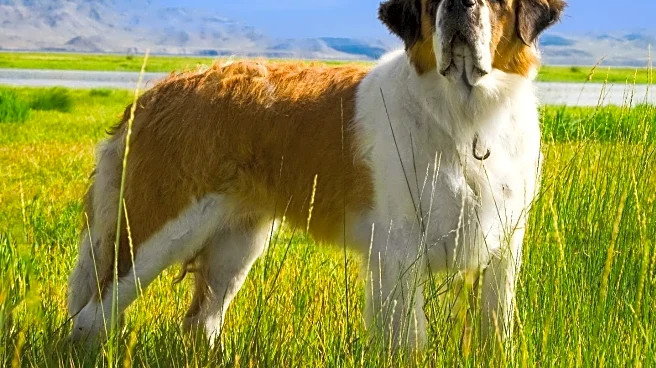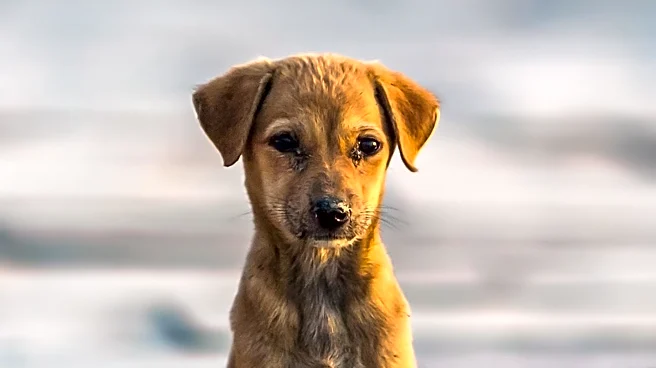What is the story about?
What's Happening?
A letter from Jens Jensenius, published in New Scientist, proposes that the domestication of dogs might be attributed to natural selection rather than human intervention. Jensenius shares an anecdote about a mink farm where a mink displayed tameness, suggesting that such behavior could be a result of mutations and natural selection. This perspective challenges traditional views on domestication, which often emphasize human-driven processes.
Why It's Important?
The idea that domestication could occur through natural selection rather than human intervention offers a new perspective on the evolution of domesticated animals. It suggests that certain traits may naturally emerge and be selected for over time, potentially altering our understanding of how domestication occurs. This could have implications for studies in evolutionary biology and genetics, as it highlights the role of natural processes in shaping animal behavior and characteristics.
Beyond the Headlines
Exploring the concept of natural selection in domestication raises questions about the ethical and scientific implications of breeding practices. It may prompt researchers to consider the balance between natural evolution and human influence in the development of domesticated species. Additionally, this perspective could influence conservation strategies, as understanding natural selection processes might aid in preserving genetic diversity and resilience in animal populations.
















